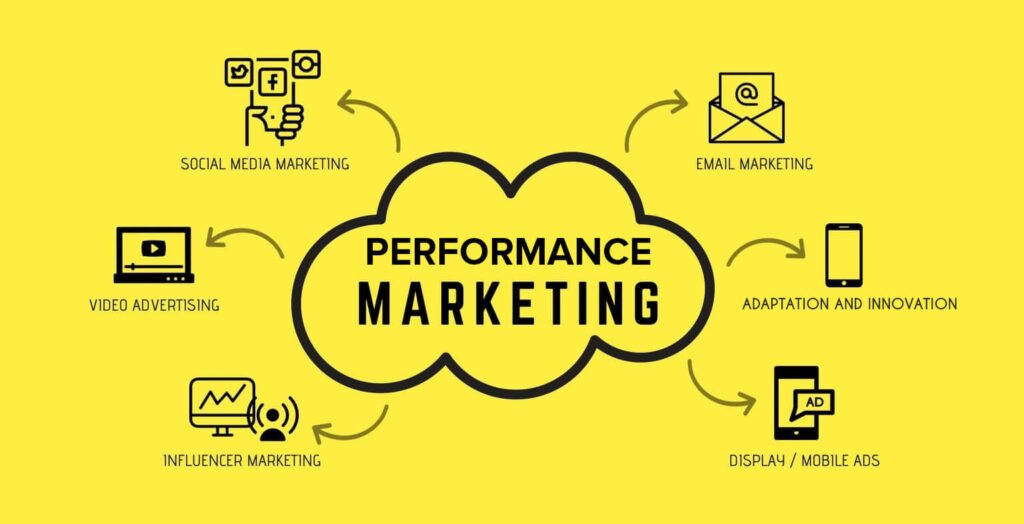In today’s digital-first landscape, traditional advertising alone no longer cuts it. Businesses now demand strategies that offer transparency, measurable results, and a clear return on investment (ROI). This is where performance marketing comes into play.
Performance marketing is a results-driven approach where businesses only pay for specific actions—like clicks, leads, or conversions—rather than just impressions. From startups to enterprise-level brands, understanding the importance of performance marketing can be a game-changer for your growth strategy.

What is Performance Marketing?
Performance marketing is a digital marketing strategy focused on measurable results. Advertisers only pay when a specific action occurs, such as:
A click on an ad
A lead form submission
A product purchase
An app install
This model spans across platforms like Google Ads, Facebook Ads, affiliate marketing, influencer partnerships, and more. It blends data, analytics, and creativity to achieve scalable and cost-effective growth.
Why Performance Marketing Is Important for Businesses
1. Pay Only for Results
One of the biggest advantages of performance marketing is that you pay for actual outcomes, not just ad placements. This makes it a low-risk investment, especially for businesses with limited budgets.
2. Highly Measurable and Transparent
With performance marketing, every click, impression, and conversion is tracked. Platforms like Google Analytics and Meta Ads Manager offer real-time data, allowing you to evaluate your campaign’s ROI and optimize it continuously.
3. Laser-Focused Targeting
Performance marketing allows you to target audiences based on location, behavior, interests, and even purchase intent. This means your ads reach the right people at the right time—leading to higher conversion rates.
4. Scalable Growth
Once you identify a high-performing campaign, you can scale it rapidly. With the right budget and optimization strategies, performance marketing can deliver exponential growth without exponentially increasing your spend.
5. Optimized for Conversions
Unlike traditional branding efforts, performance marketing is designed to convert. Through A/B testing, retargeting, and funnel optimization, marketers can refine campaigns for maximum impact.
Popular Channels for Performance Marketing
Search Engine Marketing (SEM): Google Ads and Bing Ads
Social Media Advertising: Facebook, Instagram, LinkedIn, TikTok
Affiliate Marketing: Partners or influencers driving traffic and conversions
Native Advertising: Paid content on relevant publisher platforms
Email Marketing: Personalized, data-driven campaigns focused on clicks and sign-ups
Performance Marketing vs. Traditional Marketing
| Feature | Performance Marketing | Traditional Marketing |
|---|---|---|
| Cost | Pay-per-result | Pay for exposure |
| Measurability | High | Low |
| Flexibility | Real-time adjustments | Static |
| ROI Tracking | Precise | Estimations |
| Targeting | Hyper-focused | Broad |
The importance of performance marketing lies in its ability to deliver trackable, scalable, and result-oriented outcomes. For businesses looking to grow efficiently and strategically, performance marketing offers a smart, data-driven way to achieve marketing goals without wasting budget on guesswork.
